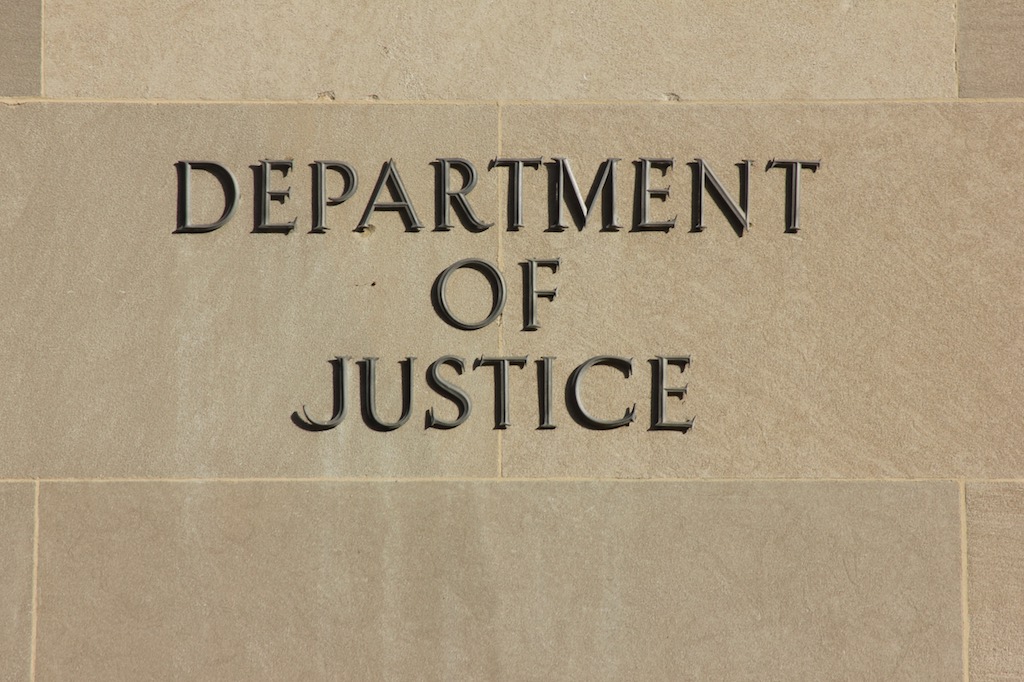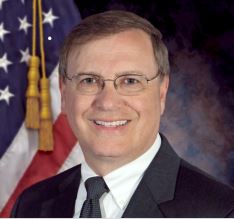Equitable Tolling and the Prosecution of a President
Attorney General William Barr’s recent four-page letter to Congress, quoting from Special Counsel Robert Mueller’s final report, stated that Mueller’s “investigation did not establish that members of the Trump Campaign conspired or coordinated with the Russian government in its election interference activities.” But Mueller purportedly did not determine whether President Trump obstructed justice.

Attorney General William Barr’s recent four-page letter to Congress, quoting from Special Counsel Robert Mueller’s final report, stated that Mueller’s “investigation did not establish that members of the Trump Campaign conspired or coordinated with the Russian government in its election interference activities.” But Mueller purportedly did not determine whether President Trump obstructed justice. Barr, however, apparently decided the facts do not warrant an obstruction of justice prosecution.
Though Barr found the evidence insufficient, other prosecutors—and judges and juries, for that matter—might see it differently. Moreover, some believe that Mueller’s court filings in Michael Cohen’s prosecution in the Southern District of New York show that the president conspired to commit campaign finance fraud. In a future administration under a different president and a different attorney general, federal prosecutors might theoretically have the chance to determine whether a now-former President Trump should be prosecuted for either of these crimes. We are not advocating here for subsequent prosecution of these crimes in a new administration. Rather, we are simply exploring one of the legal barriers to prosecution: the statute of limitations, or the time limit given to prosecutors to charge a crime, based on the date the crime was completed.
The Justice Department concluded in a 2000 memo that the Constitution prohibits charging a sitting president. But all sitting presidents become former presidents, and the Constitution does not bar charging a former president. The statute of limitations, on the other hand, might. The 2000 memo assumed either Congress or the courts could ensure the statute of limitations would not expire, concluding “the public interest in indictment alone would be … weaker still given Congress’ power to extend the statute of limitations or a court’s possible authority to recognize an equitable tolling”—that is, to suspend the statute of limitations in the interests of justice. But the memo says nothing about the strength of either option. And neither option seems certain to us.
The statute of limitations ensures that the possibility of criminal prosecution does not hang over a defendant’s head forever and encourages prosecutors to bring charges while evidence is fresh. In United States v. Marion, the Supreme Court noted that statutes of limitations work in tandem with the Constitution’s Speedy Trial Clause to prevent pretrial delay. But while the purpose of the Speedy Trial Clause is to protect criminal defendants, statutes of limitations reflect a balance between protecting defendants from delay and allowing prosecutors adequate time to investigate and charge.
The typical statute of limitations for federal criminal offenses is five years, meaning that charges must ordinarily be brought within five years of the last act that constitutes the particular crime. Some offenses, based on their severity and the difficulty of prosecuting them, have longer statutes of limitations, as established by Congress. For example, the statute of limitations is eight years for certain terrorism offenses and 10 years for some bank fraud crimes. But the five-year limitation period applies to the statutes criminalizing obstruction of justice.
If prosecutors wanted to bring charges against the president after he left office, they would need to determine whether the statute of limitations for the applicable crime permitted that. But even if the statute of limitations has run, a court could preserve charges that have otherwise expired through equitable tolling—a judicial suspension of the statute of limitations, devised by courts to yield fair and just results.
In Young v. United States, Justice Antonin Scalia wrote that all statutes of limitations periods are “customarily subject to equitable tolling.” But equitable tolling is applied only in very limited circumstances, and it is more typically applied in civil cases. Most cases in which criminal statutes of limitations are tolled involve situations in which the commission of the crime is concealed or the defendant has fled or is unavailable—but tolling in these circumstances is authorized by statutes. Such cases, therefore, do not require equitable tolling, which is a resort to the plenary power of the courts to ensure that justice is done. At least one federal court of appeals—the Third Circuit in United States v. Midgley—has explicitly said that equitable tolling can apply in criminal cases. But even in that case, the court decided not to toll the statute of limitations for prosecutors who sought to charge the defendant with crimes they had originally dropped in a plea bargain after the defendant violated that agreement.
When courts do address equitable tolling in criminal cases, they typically stress that it applies only in extraordinary circumstances and when demanded by the “interests of justice.” For example, the Second Circuit in United States v. Grady held that the statute of limitations tolled when “a superseding indictment [is] brought at any time while the first indictment is still validly pending, if and only if it does not broaden the charges made in the first indictment.” While the Second Circuit did not directly call this equitable tolling, the Third Circuit clarified in United States v. Friedman that the Grady rule must be an equitable one as it was not grounded in the interpretation of any statute.
Courts have also allowed criminal statutes of limitations to be equitably tolled when indictments are timely filed under seal and then made public after the limitations period has expired, unless the defendant proves that this had a prejudicial effect. In the current case, this exception seems irrelevant, because Barr reports that Mueller did not obtain any further indictments under seal. Additionally, charging the president under seal may also run afoul of the Sixth Amendment and the Supreme Court’s decision in Doggett v. United States, in which the court held that an eight-and-a-half-year delay between a defendant’s indictment under seal and his arrest violated his right to a speedy trial.
So, are current circumstances extraordinary enough to equitably toll the statute of limitations? A sitting president may have obstructed justice or conspired to commit campaign finance fraud but cannot be charged pursuant to Justice Department policy—and if the president is reelected, the ordinary five-year statute of limitations may expire on these charges. But if Barr believes the evidence is insufficient to prosecute the president for obstruction—and he stated in his letter to Congress that, in reaching this determination, he did not consider the 2000 memo arguing for the president’s possible constitutional immunity—then perhaps the matter at hand is simply that of prosecutorial discretion. That is an ordinary part of every prosecutor’s job and seems insufficient to trigger the extraordinary remedy of equitable tolling.
The court in Midgley noted that equitable tolling should be used only in the “rare situation where equitable tolling is demanded by sound legal principles as well as the interests of justice.” If the Justice Department is right that the Constitution bars prosecuting a sitting president, one might think that the commander-in-chief would not be above the law forever—only long enough to lead the executive branch until the next transition of power. Then, by recognizing an equitable tolling, the courts could ensure that he gets his day in court. One could argue that justice demands this kind of accountability for the president. Of course, there are countervailing policy reasons not to charge, too, similar to those animating Gerald Ford’s pardon of Richard Nixon—a debate we can defer to another day.
The Midgley court also pointed out that “the very existence of a statute of limitations entails the prospect that wrongdoers will benefit, and that this reason alone cannot serve as the basis for an exception to the statute.” In other words, the desire to hold a person accountable is not enough to toll the statute of limitations set by Congress.
We all ought to think through this issue. Prosecutors should think about arguments that could be made to courts regarding equitable tolling. Lawmakers should think about the possibility of passing legislation to toll statutes of limitations during a president’s time in office. And citizens should consider how much weight they place on preserving criminal liability and what they expect of their elected officials.





